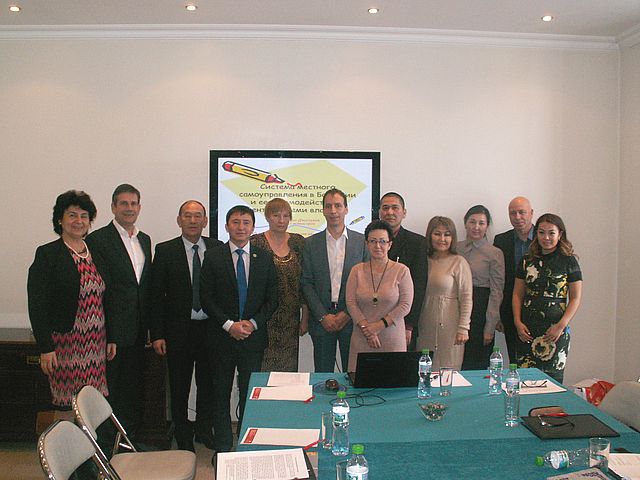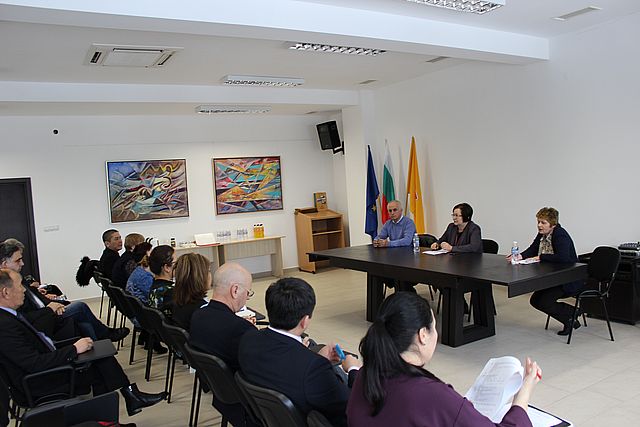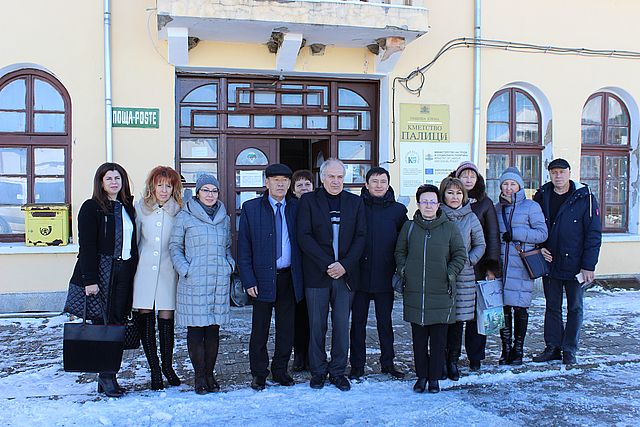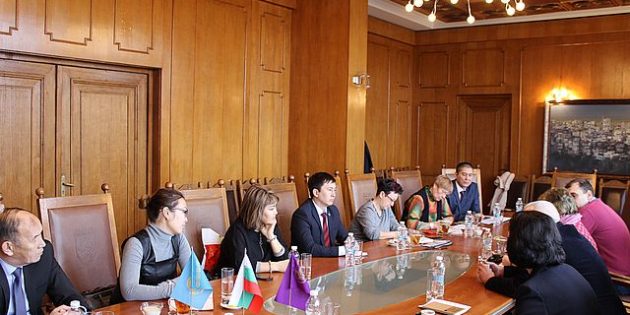How to involve citizens at the maximum level in the decision-making process? How can social services be provided at the local level? Representatives from Bulgarian municipalities shared their experience and vision of these and other tasks with internship participants. From January 21 to 28, 2018, ARGO employees, along with representatives of East Kazakhstan and Karaganda regions akimats (local mayor’s offices), Astana city, and representatives of the Ministry of National Economy, completed an internship in Bulgaria to study local governance practices.
First, what was the reason for choosing Bulgaria for an internship? The reason is that Eastern European countries have a similar political structure, historically formed in the post-Soviet period, and thus their experience is applicable to Kazakhstan. Second, Bulgaria is one of the countries that signed and ratified the European Charter of Local Self-Government (EXMC), adopted on October 15, 1985.
During the internship, participants learned how to resolve such issues as providing social services at the local level, involving citizens in the decision-making process at the local level, and holding meetings of local communities. They also learned about organizing the annual village development plan, collecting taxes and imposing fines at the local level, and about many other issues. The first day was held in Sofia, the capital of the country. During the presentation “Local Self-Governance in Bulgaria”, State Expert of the Council of Ministries of the Republic of Bulgaria Mr. Aleko Giljov told internship participants about the legislative foundations of local self-governance. During the next meeting with the Chairman of NAMRB (National Association of Municipalities of the Republic of Bulgaria), Ms. Ginkoy Chavdarova disclosed issues regarding interaction between the Central and Local Governments and the provision of public services at the local level.
The internship was organized very well, I gained crucial knowledge, as well as experience in the development of local self-governance,” noted Bagzhan Bilyalov, the akim of Zharaspay village, Nurinsky district of Karaganda region.
 At a meeting with the Chief Architect of Sofia, participants learned about methods of urban planning, perspectives for the city’s architectural development, and the impact of European documents on the development planning process. Among those present was the Ambassador of the Republic of Kazakhstan to the Republic of Bulgaria, Mr. Temirtai Izbastin, who expressed his gratitude to the Urban and Spatial Planning Department of Sofia. The Ambassador expressed the wish to internship participants that they successfully apply the skills acquired in Bulgaria at home in Kazakhstan.
At a meeting with the Chief Architect of Sofia, participants learned about methods of urban planning, perspectives for the city’s architectural development, and the impact of European documents on the development planning process. Among those present was the Ambassador of the Republic of Kazakhstan to the Republic of Bulgaria, Mr. Temirtai Izbastin, who expressed his gratitude to the Urban and Spatial Planning Department of Sofia. The Ambassador expressed the wish to internship participants that they successfully apply the skills acquired in Bulgaria at home in Kazakhstan.
Thanks to ARGO’s good organization and the Foundation for Local Self-Governance Reform, it was easy to understand the specifics of LSG in Bulgaria.It was important that we had a competent interpreter,” noted one of the internship participants.
A representative from the Ministry of Regional Development, Ms. Irina Zakharieva, spoke about the role and functions of the regional councils in the strategic planning process, as well as their interaction with district development councils. Deputy mayor of the municipality of Veliko Tarnovo, Mr. Gancho Karabadjakov, shared his experience in providing social services, solving complex social issues at the local level, and delegating the provision of social services to non-governmental organizations. The group also visited the Day Care Center for People with Disabilities and saw how a service delegated to a non-governmental organization is being implemented on the ground. During a meeting with representatives of the non-governmental organization MIG, participants were introduced to LEADER’s European approach to local development planning, implementation of community support projects, project financing issues, and learned about best practices.

The Bulgarian experience turned out to be very interesting: 13 rural districts were transferred into our district. All of them were subsidized, and our budget was 6 billion. The fact that six taxes were transferred to the villages did not increase the budget. Six taxes did not cover 6 problems. That is why one of my proposals to the ministry was to form the “level 4” budget. These days, villages need some of the financing to come from the republican budget. The funds are needed for construction, reconstruction, major repairs of roads, water supply, sewerage, and lighting. If there is funding, people will be interested in actively taking part in village life. Besides, in Bulgaria, all of these projects are implemented by NGOs,” said Svetlana Bolshakova, the head of Department of Economy and Budget Planning of akimat of Glubokoe district, Eastern Kazakhstan Region.
During the training, 11 meetings were held in three municipalities, as well as the villages therein. For example, the Mayor the Troyan municipality spoke about the role and functions of municipal mayors, public councils at the local level, and interaction between the municipal council, the mayor and the municipal administration. In addition, he spoke about involving citizens in the decision-making process.
The mayor of Oreshak village shared his experience in the development of SMEs and tourism in the village. His colleague from Elena municipality spoke about the Municipal Development Plan of Elena Municipality for 2014-2020. He also spoke about the plan for implementing programs, interaction between the municipal administration and the municipal council in the development process, and implementation of documents on municipal development. Also, internship participants took part in a meeting of the local community of Elena Municipality, during which the budget for 2018 was adopted.
At the end of the training, participants promised to share their knowledge at home for further application of the Bulgarian experience in Kazakhstan, as well as prepare their proposals for submission to the Ministry of National Economy of the Republic of Kazakhstan.
The internship took place within the framework of ARGO’s three-year project of “Inclusive Local Development Planning,” implemented with the financial support of the European Union.

